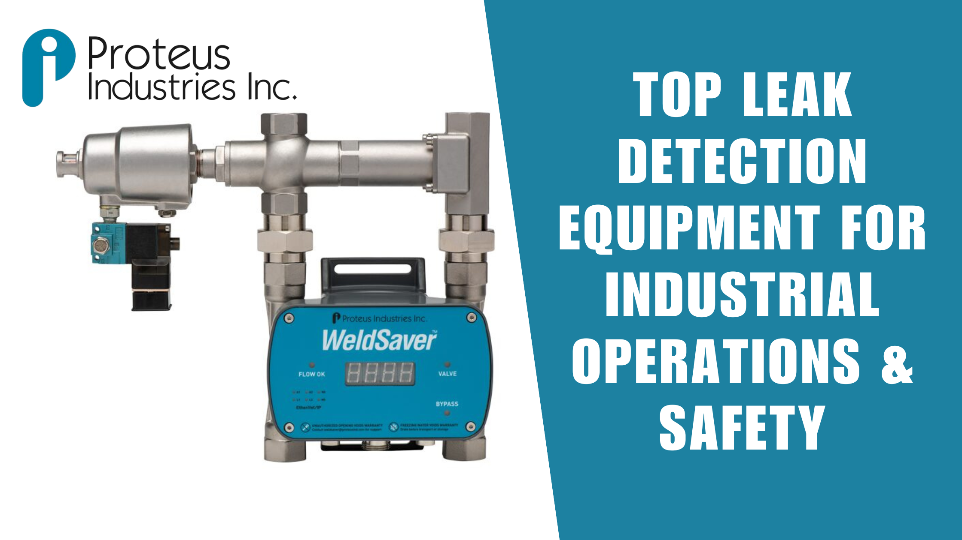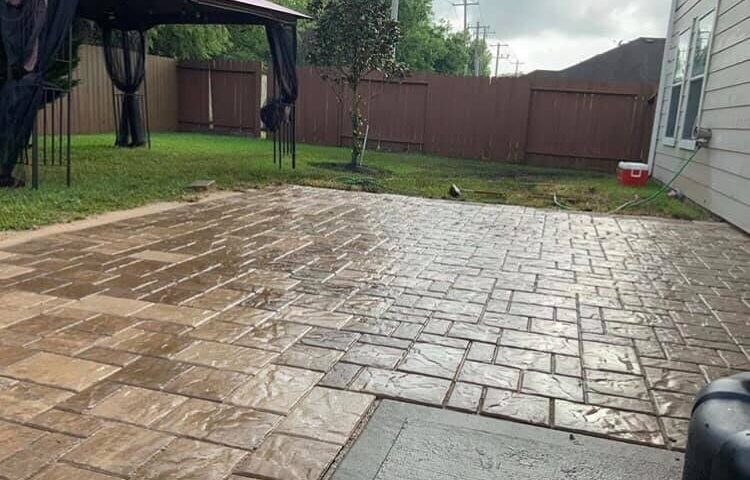In industrial environments, maintaining operational efficiency and ensuring safety are paramount. One of the critical aspects of achieving both is preventing and detecting leaks. Whether in gas, liquid, or vacuum systems, undetected leaks can lead to significant hazards, costly damage, environmental harm, and significant operational downtime. Leak detection equipment is essential in safeguarding operations, ensuring compliance with safety standards, and avoiding unexpected maintenance costs. This article will discuss the significance of leak detection equipment in industrial operations, the types of leak detection technologies available, and why investing in high-quality leak detection systems is a smart move for industrial facilities.
Why Leak Detection Matters in Industrial Settings
Leaks in industrial systems pose a range of risks, including safety hazards, environmental concerns, and financial losses. A leak, however of its size, can lead to inefficiencies, equipment damage, or even catastrophic failures in critical systems. Industrial processes often rely on pressurized systems, which can involve hazardous chemicals, high temperatures, or flammable substances—making leak detection vital.
The Risks of Leaks in Industrial Operations
- Safety Hazards: Gas leaks, chemical spills, or other hazardous material releases can result in dangerous working conditions, posing a risk of fire, explosion, or poisoning.
- Environmental Damage: Leaked substances can contaminate water sources, soil, and air, leading to severe ecological damage and the risk of violating local regulations.
- Operational Disruptions: Leaks in pipelines, vessels, or other systems can cause significant operational disruptions, leading to production delays, downtime, and costly repairs.
- Costly Equipment Failures: Over time, unnoticed leaks can cause corrosion or wear on machinery and infrastructure, potentially leading to complete system failure and expensive repairs.
Industrial facilities can minimize the risks associated with leaks and maintain the integrity of their operations by regularly using leak detection equipment.
Types of Leak Detection Equipment for Industrial Applications
Industries across various sectors—such as oil and gas, manufacturing, pharmaceuticals, and chemicals—rely on different types of leak detection equipment based on their specific needs. Each technology has its strengths and is suited to particular applications. Below are some of the most common and effective types of leak detection technologies:
1. Ultrasonic Leak Detectors
Ultrasonic leak detectors are widely used in industrial applications because they detect leaks in gas and liquid systems. These detectors capture the high-frequency sound waves produced by a leaking substance. The equipment then converts these sound waves into an audible signal, alerting operators to the presence of a leak.
Advantages of Ultrasonic Leak Detectors:
- Versatility: Effective for detecting leaks in both pressurized gas and liquid systems.
- Highly Accurate: Detecting even small leaks that might otherwise go unnoticed.
- Non-invasive: No need to disrupt the system to perform a leak check, allowing for continuous operations.
Ultrasonic leak detectors are used in manufacturing, HVAC systems, and energy production, where pressurized systems are integral.
2. Infrared Leak Detectors
Infrared (IR) leak detectors are another popular type of leak detection equipment that uses infrared technology to identify leaks in industrial systems. These detectors work by measuring the infrared radiation emitted by gases. As different gases have distinct absorption wavelengths, infrared detectors can pinpoint specific gases, making them particularly useful in industries dealing with volatile substances.
Advantages of Infrared Leak Detectors:
- High Sensitivity: Able to detect even trace amounts of leaks.
- Ideal for Gas Detection: It is particularly effective for detecting gas leaks in chemical plants, oil refineries, and power stations.
- Non-contact Measurement: Since the detector does not need direct contact with the gas, it is safer and more efficient for environments dealing with hazardous materials.
Infrared leak detectors are an excellent choice for detecting gases such as methane, carbon dioxide, and ammonia, which are commonly used or produced in various industrial processes.
3. Pressure Decay Testers
Pressure decay testing is an effective leak detection method, particularly for systems that need to maintain pressure, such as pipelines, tanks, and vessels—the test works by pressurizing a closed system and monitoring the pressure over time. If there is a leak, the pressure will decay, and the tester will identify the rate of decay, which indicates the size of the leak.
Advantages of Pressure Decay Testers:
- Precise Leak Detection: This method detects large and small leaks.
- Versatile: Suitable for testing various systems, including pressurized gas pipelines, liquid tanks, and vacuum chambers.
- Easy to Implement: Pressure decay tests can be easily incorporated into regular maintenance schedules.
Pressure decay testers are widely used in industries where pressure integrity is critical, such as aerospace, automotive manufacturing, and pharmaceuticals.
4. Mass Spectrometer Leak Detectors
Mass spectrometer leak detectors are some of the most advanced tools available for leak detection. These devices analyse the ions created by gases or liquids escaping a system. Mass spectrometers can identify minute amounts of leakage and are ideal for systems requiring extremely high levels of sensitivity and accuracy.
Advantages of Mass Spectrometer Leak Detectors:
- Ultra-High Sensitivity: Able to detect minor leaks, even to a few molecules.
- Ideal for Critical Systems: Used in industries where even the tiniest leaks, such as semiconductors or nuclear sectors, can have significant consequences.
- Accurate and Reliable: Provides exact readings that can pinpoint the precise location of the leak.
Although mass spectrometer leak detectors are more expensive and complex than other types, they are invaluable in applications where high precision is essential.
Proteus Industries Inc. and the Best Leak Detection Solutions
Proteus Industries Inc. is a leader in providing industrial-grade leak detection equipment designed to meet the diverse needs of modern industrial operations. Proteus’s systems are built to ensure safety, operational efficiency, and compliance with industry standards. Their commitment to providing innovative, reliable, high-quality products makes them a trusted partner for leak detection in various industrial sectors.
1. Proteus WeldSaver Leak Detection System
One of Proteus Industries Inc.’s standout products is the WeldSaver system. This innovative leak detection equipment is designed for industries with pressurized systems and welded joints. The WeldSaver system utilizes advanced detection technologies to monitor leaks in real-time, identifying potential issues before they lead to catastrophic failures.
Key features of the WeldSaver system include:
- Real-Time Monitoring: Continuous tracking of system pressure and leak detection to ensure maximum uptime.
- High Sensitivity: Detects even minor leaks, preventing potentially costly downtime and repairs.
- Durability: Designed to withstand the harsh requirements of industrial environments, the WeldSaver system is built to last.
For more information on the WeldSaver system, visit Proteus Industries Inc.
2. Additional Proteus Leak Detection Solutions
In addition to the WeldSaver, Proteus Industries Inc. offers other specialized leak detection equipment:
- SmartFlow Systems: These systems are designed for industrial applications with critical flow monitoring. The SmartFlow system alerts operators to leaks in pipelines, tanks, or vessels, detecting issues early.
- GasTracer Leak Detection: For industries working with volatile gases, the GasTracer system provides an advanced solution for detecting gas leaks before they escalate into dangerous situations.
- PressureGuard Systems: Perfect for industries that rely on high-pressure systems, PressureGuard systems continuously monitor pressure and detect leaks in real-time.
Each of these solutions is designed with precision and reliability, ensuring that your operations are protected from the risks associated with leaks.
Conclusion
Industrial environments demand high levels of safety, efficiency, and reliability. Leak detection equipment ensures industrial systems operate smoothly without unexpected disruptions or hazards. From ultrasonic detectors to advanced mass spectrometers, numerous options are available to meet the specific conditions of different industries. Investing in high-quality leak detection systems, such as those offered by Proteus Industries Inc., is a proactive approach to mitigating risks, reducing downtime, and improving the overall efficiency of industrial operations. For more information on Proteus Industries Inc.’s comprehensive leak detection solutions, visit Proteus Industries Inc. and explore their cutting-edge products designed to enhance your operational safety and performance.




